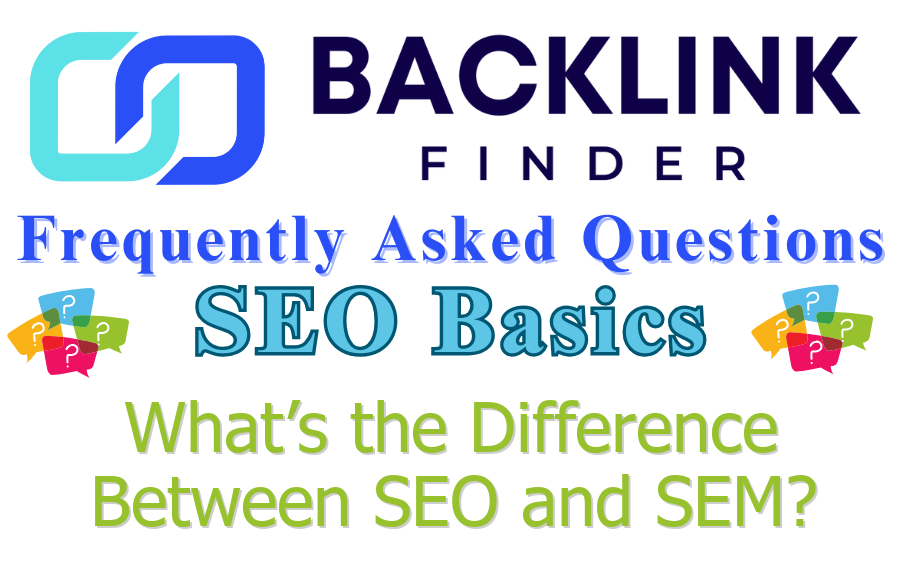What’s the Difference Between SEO and SEM?

SEO and SEM are two commonly used terms in digital marketing. While they sound similar and are often used interchangeably, they represent different approaches to gaining visibility in search engines.
What is SEO?
SEO stands for Search Engine Optimization. It’s the practice of improving your website’s visibility in organic (unpaid) search engine results.
SEO involves optimizing your website’s technical setup, content, and backlinks to ensure search engines easily find, understand, and rank your site highly.
Key Components of SEO:
- On-Page SEO: Optimizing content with targeted keywords, proper meta tags, headings, and internal links.
- Technical SEO: Improving site speed, mobile responsiveness, structured data, and website security.
- Off-Page SEO: Acquiring quality backlinks, leveraging guest posting, and social signals to boost credibility and rankings.
What is SEM?
SEM stands for Search Engine Marketing. SEM is a broader term that includes SEO but also encompasses paid advertising through platforms like Google Ads or Bing Ads.
SEM focuses on gaining immediate visibility through paid search campaigns, such as PPC (Pay-Per-Click), where advertisers pay each time someone clicks their ad.
Key Components of SEM:
- PPC Advertising: Pay for clicks from search results, often displayed at the top or bottom of search result pages.
- Ad Targeting: Precisely target ads based on keywords, demographics, geography, and time of day.
- Budget Control: Manage your spending effectively, setting daily or monthly budgets for campaigns.
SEO vs. SEM: Quick Comparison
| SEO (Search Engine Optimization) | SEM (Search Engine Marketing) |
|---|---|
| Organic, unpaid strategy. | Paid advertising strategy. |
| Long-term results and sustainable growth. | Immediate visibility but temporary unless continued investment. |
| Builds website credibility and authority. | Doesn’t directly impact organic rankings. |
| Results take longer to achieve but last longer. | Instant results but stops once budget runs out. |
“SEO is a marathon, SEM is a sprint. Use both wisely to achieve lasting results.”
— Rand Fishkin, Founder of Moz
Which Should You Choose?
The best strategy often involves a combination of both SEO and SEM. SEM can provide quick results, driving immediate traffic and conversions. On the other hand, SEO offers sustained, long-term growth, credibility, and visibility without ongoing costs for clicks.
Regardless of the approach, building a robust backlink profile is crucial. Tools like Backlink Finder help webmasters efficiently identify quality backlink opportunities, streamlining link-building efforts and enhancing SEO effectiveness.
Further Reading
- Moz: SEO vs SEM – What’s the Difference?
- Ahrefs: SEO vs SEM Explained
- Search Engine Land: Guide to SEM

